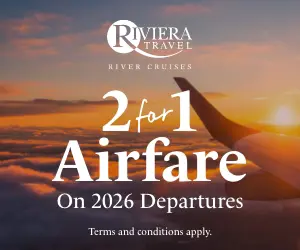Conversations in Cuba: How People-to-People Travel Became Cool
by David Cogswell
Downtown of Old Santiago de Cuba. Photo: Rafal Cichawa/Shutterstock.com
It’s ironic that people-to-people travel to Cuba, which began as a regimen of government regulations described by tour operators as “onerous,” has evolved into a model for experiential travel, one of the hottest trends in today’s travel industry.
How did that happen? Well…
Under the terms of the U.S. embargo of Cuba in place since the early 1960s, it was illegal for Americans to spend any money that would go to Cuba: no cigars, no rum, no travel.
The People-to-People Travel program was instituted by President Bill Clinton in 1999 as a way to carve out some exceptions to the embargo to allow Americans to travel to Cuba “to engage in certain educational exchanges in Cuba under the auspices of an organization that is a person subject to U.S. jurisdiction and sponsors such exchanges to promote people-to-people contact,” according to the website of the U.S. Department of the Treasury.
As a begrudging exception to the embargo, a long-running act of war, the category of people-to-people travel was not meant to be fun, nor to be a vacation. Although it created an exception that would allow Americans to travel to Cuba, the government did not make it easy.
Participants in people-to-people travel had to follow a “full-time schedule of educational exchange activities,” according to the U.S. Department of the Treasury’s Office of Foreign Assets Control (OFAC). That meant up in the morning and out the door maintaining a rigorous schedule of meetings. It doesn’t sound like many people’s idea of fun.
The onerousness of regulation
The management of people-to-people travel was set up under OFAC. Tour operators had to apply to OFAC to be approved as an organization that could be allowed to conduct educational interpersonal exchanges.
Everything about it was difficult. Tour operators had to keep detailed records of every movement so they could prove their full compliance to the government. Applications had to be made for every individual trip, with heaps of paperwork required. Licenses had to be re-approved every year or so.
So tour operators, who have to plan tours years ahead, would have to go forward with planning and booking without knowing for sure if they would have a license when departure time came.
Tour operators were subject to harsh penalties for failing to comply with the regulations. The restrictions were so thorny that some operators just folded their cards and walked away rather than risking getting assessed stiff fines. Some major travel companies got caught in errors and had to pay expensive penalties and endure public embarrassment.
The Cuban political football
Always a political football, U.S. policy toward Cuba changes with every change of political party.
People-to-People travel was cut off by former President Bush in 2003 and then reopened by former President Obama in 2011, setting off a new rush to Cuba. Furthermore, in December 2014, when Obama announced a re-establishment of diplomatic relations with Cuba, he also loosened the restrictions on travel and reduced the licensing and paperwork requirements for tour operators.
For a while under Obama, it was possible for individuals to travel to Cuba for people-to-people experiences. But that was ended last June by President Trump. Trump also issued a restriction on which hotels could be used by American tour operators, which made the tour operators’ lives more difficult, but did not have much effect on the experience of travelers.
However, Trump left in place most of Obama’s initiatives to open Cuban travel to Americans. With Trump’s reversal of the policy to allow individual travel, we are now back to where Americans have to go with a licensed tour operator on an approved people-to-people program. But, that is not a bad place to be.
Enter culturally immersive, experiential travel
Meanwhile, as the politicians continued their endless back-and-forth football game, the market was evolving. It was trending toward experiential, culturally immersive travel. Travelers were tiring of superficial tours in which they experience a destination as a series of postcard views and visits to “must-see” sights and monuments, but never feeling like they penetrated the surface, never really getting to know the people and how they live.
A new line of innovation took hold in the marketplace as tour operators responded to the desire to get deeper into the destination, have meaningful interpersonal exchanges with locals, and use the tour operators’ in-destination connections to set up experiences that individual travelers could not arrange for themselves.
Now, we see the unlikely meeting of two separate trends. With people-to-people travel to Cuba greatly liberalized, it emerges as a model for immersive, experiential travel, which happens to be what more and more travelers are looking for today.
Tour operators that honed their skills in the tough world of travel to Cuba, can now turn those same skills to work operating tours in other countries, because that’s very close to the way a growing number of travelers want to travel anyway. But, in other countries they will not have to fight the U.S. government every step of the way just to be able to operate.





















